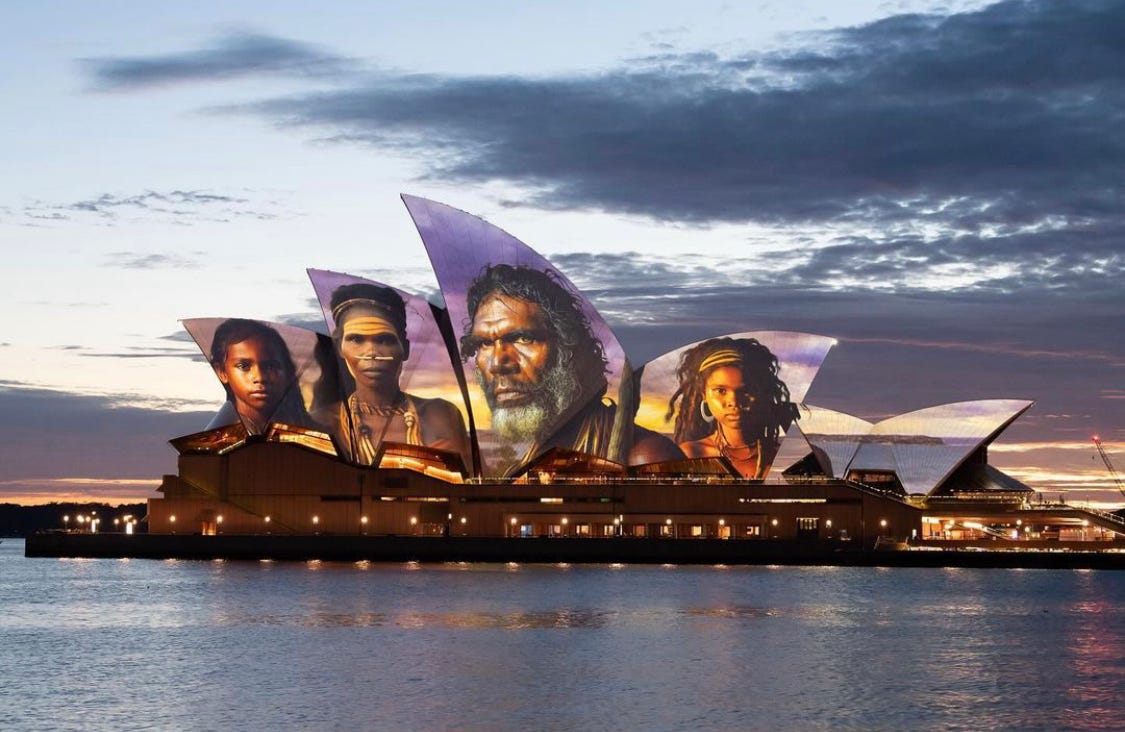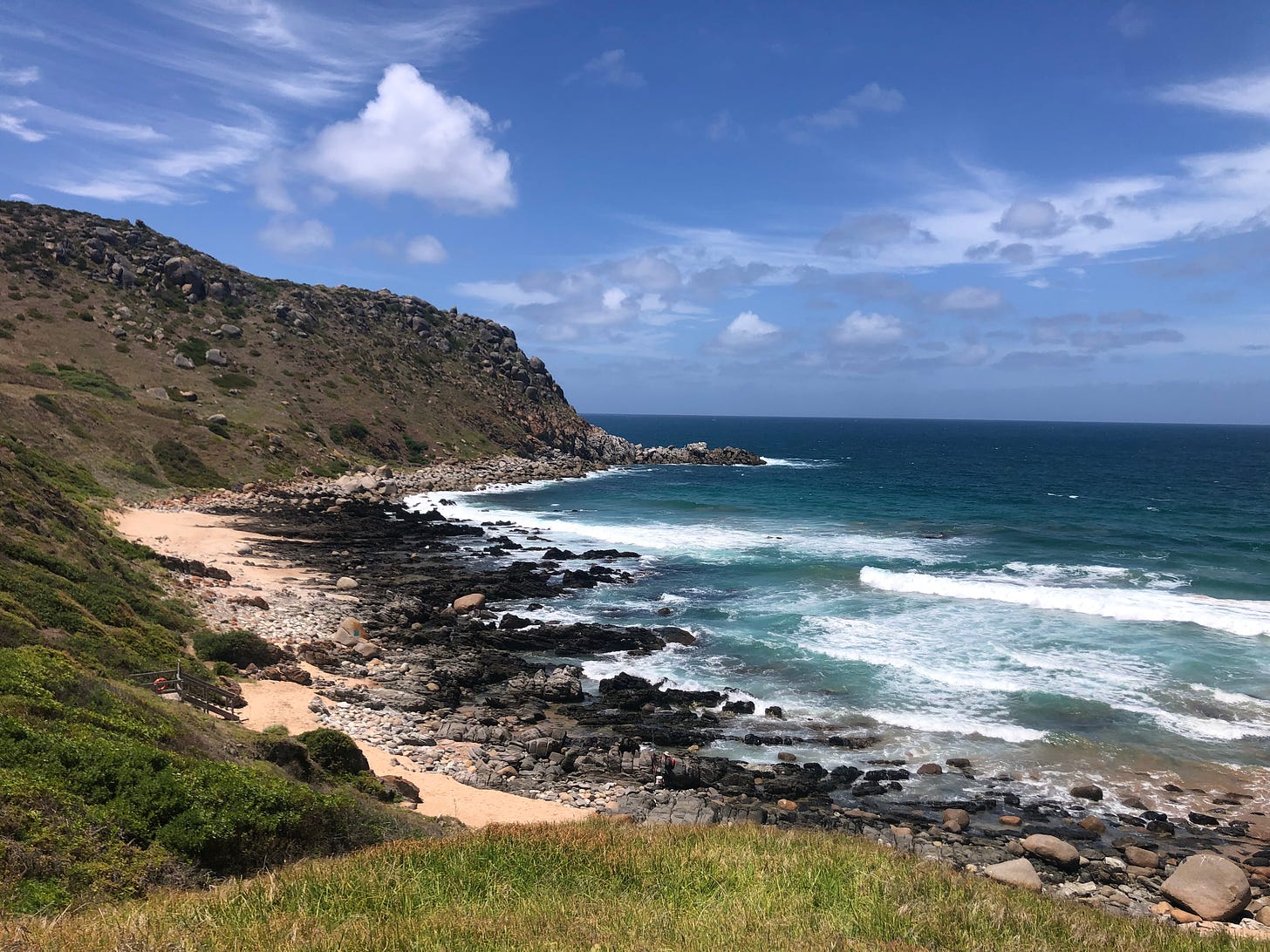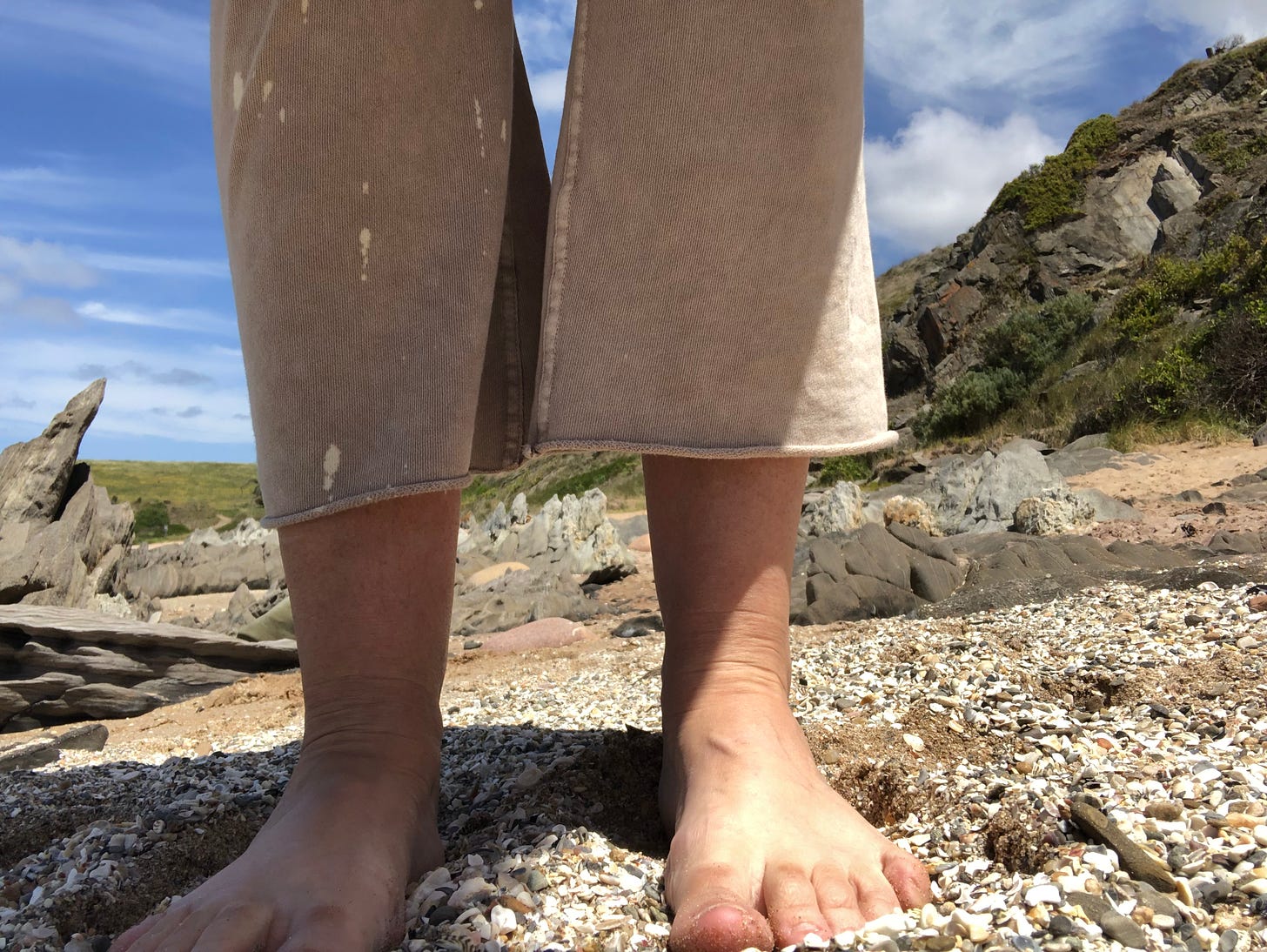It's not "woke" to bow out of Australia Day
Learning to walk softly, listen intently, and receive humbly.
Art: Kooma artist Brett Leavy developed with the Metropolitan Local Aboriginal Land Council
Photo: Wendell Teodoro via Getty
My family and I haven’t celebrated Australia Day in years. Not because we don’t love Australia. Not because we aren’t grateful to be Australian. But because we do and we are.
January 26 as a calendar date is fraught with dark history for Indigenous people. Our violence toward them is not exclusive to this date, but this date is representative of the revisionist history we perpetuate when we embrace a narrative where genocide and cultural erasure is re-written into a belligerent celebration of beer chugging, flag waiving, and victorious pride. Either we haven’t been educated enough to understand our history. Or we have been and we willfully choose to ignore it. Both of those options are a form of perpetuating violence against First Nations people and the smallest, simplest way I can stand against that is to say I won’t participate. It costs me nothing to bow out. (Making up new narratives such as “it’s about citizenship” is also a cop-out—a ‘new’ way to frame that which is still a form of revisionist history.)
I miss Gadigal Land (Sydney) where we always spent January 26 at the Yabun Festival, joining in solidarity with Indigenous artists and dancers and musicians—listening and learning about unequal justice, disproportionate deaths in custody, gaps in maternal health care and education, sanctioned cultural erasure, stolen generations and stolen land, sovereignty never ceded, genocide, willful deafness from both neighbors and politicians, stories of survival and resilience, and the resounding cry for Voice and Treaty.
We live in regional Australia now—on Ngarrindjeri Land—and expressing our support on January 26 looks different. It’s quieter, though I hope not silent. So instead, I spend time reflecting on the heritage of Australia, which now includes my own immigration story. I’m thankful this land has been generous enough to include me. I, too, am an immigrant in search of a more truthful story. My commitment is to try and walk softly, listen carefully, love intently, and do my best to teach my children—natural born Australians—the same.
Photo: My favorite coastal walk only ten minutes from home—Ngarrindjeri Land, South Australia
Thankfully, I’m not alone. Many of us (especially the younger folks) want to live a better way as we learn to honor First Nations Elders—past, present, and emerging—and learn how to live more gently on the land and seas and waterways of our beautiful home.
In his opinion piece at The Guardian, Paul Daley wrote of the tide shifting as Australians take responsibility for telling the truth about today: “No matter how indignantly the woke-as-a-pejorative crowd screech on their op-ed pages and rant into those lonely late-evening airwaves about the politically correct trying to steal their day, the cultural tide is ebbing fast. . . . For 26 January 1788 was the day of the apocalypse for Indigenous Australians for whom the dire generational legacies of violent dispossession continue to resoundingly reverberate.”
To me this isn’t politics or political correctness or being “woke.” It’s not a bandwagon to be jumped upon. It’s not millennial rage or teen angst or borrowed grievance. It’s simply—and hopefully humbly—doing my best to be sensitive, honest, and participate in the circular economy of receiving and extending hospitality.
Survival day, invasion day, day of mourning, day of remembering, day of honor, day of resilience, day of truth telling, day of belonging, day of inclusion, day of hope. All of these are important.






